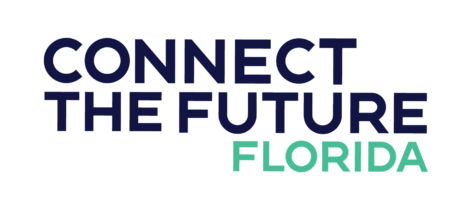Winners of the Opportunity4All Essay Competition Recognized at Real Rural Tech Talk Event with Florida State Rep. Josie Tomkow

In partnership with the University of Florida and the Institute of Food and Agricultural Sciences 4-H Youth Development Program, Connect the Future Florida supporter Charter Communications recently hosted a Real Rural Tech Talk Roundtable Discussion, which included a 4-H essay competition. Moderated by State Representative Josie Tomkow (R-District 39), the event brought together Florida leaders to discuss the challenges of broadband connectivity in rural communities across the state, and potential solutions to bridge the existing digital divide.
The event also recognized and awarded the outstanding efforts of three top-placing 4-H students in Charter’s Opportunity4All: Expanding Broadband in Rural Communities Essay Competition. Winning essays were selected from among student submissions that focused on the impact that technology and broadband issues have on Florida’s rural and agricultural communities, and the potential solutions to address these issues. The three winners received cash prizes and a Chromebook.
First Prize: Alex Pisacane, “Bridging the Digital Divide in Florida’s Rural Communities”
First prize winner Alex Pisacane focused on how increased broadband access in rural areas would benefit fellow Floridians by enriching educational, economic, and social opportunities – particularly during the COVID-19 pandemic. As a homeschooled student, Alex has long been keenly aware of how reliable, high-speed internet access is critical to receiving a quality education. To address the digital divide, Alex calls for a hybrid public-private solution that brings together the government, broadband providers, and third-party groups like 4-H to get every Floridian connected and “enrich the lives of those in rural areas in need of digital equality for a better quality of life.”
Second Prize: Jessica Morris, “An Unequal Opportunity – What’s Wrong with the WiFi and How to Fix It”
Jessica started off her award-winning submission with a quote from Wikipedia’s Jimmy Wales: “Imagine a world in which every single person on the planet is given free access to the sum of all human knowledge. That’s what we’re doing with the internet.” As Jessica aptly points out, however, accessing that information “isn’t actually free, and certainly not available to every person on the planet” – including in Florida – particularly in the rural parts of the state. Her work examined existing research of rural residents, along with an original survey that she created which received over 200 responses, to illustrate how and why certain parts of the state continue to lack critical access to broadband.
Third Prize: Carolyn Wolking, “Broadband is Essential for Rural Florida”
Carolyn’s award-winning piece centered around the impact that a lack of broadband access has on young Floridians’ educational, physical, and emotional well-being. She explains how the achievement gap – the disparity in success in the classroom due to lack of internet access – can lead to an opportunity gap for the rest of their lives. She argues that a coordinated and strategic effort is needed to ensure that rural communities in Florida are as connected as their urban counterparts, and proposes the creation of a Broadband Capital Fund that supports the investment of broadband projects in rural areas.
